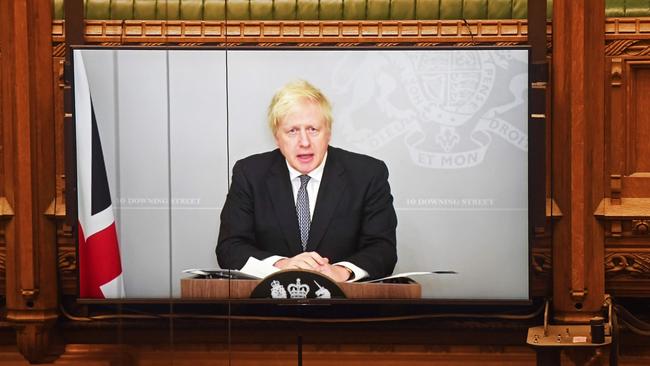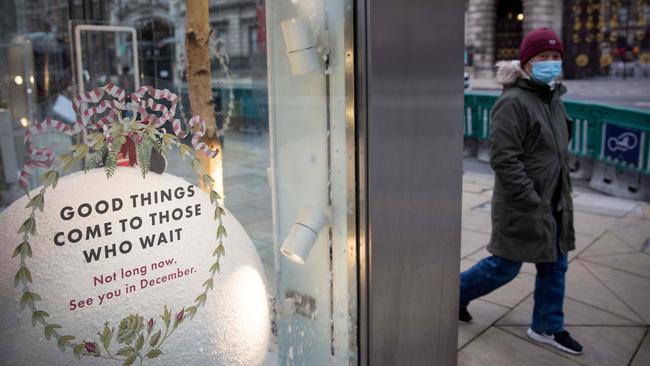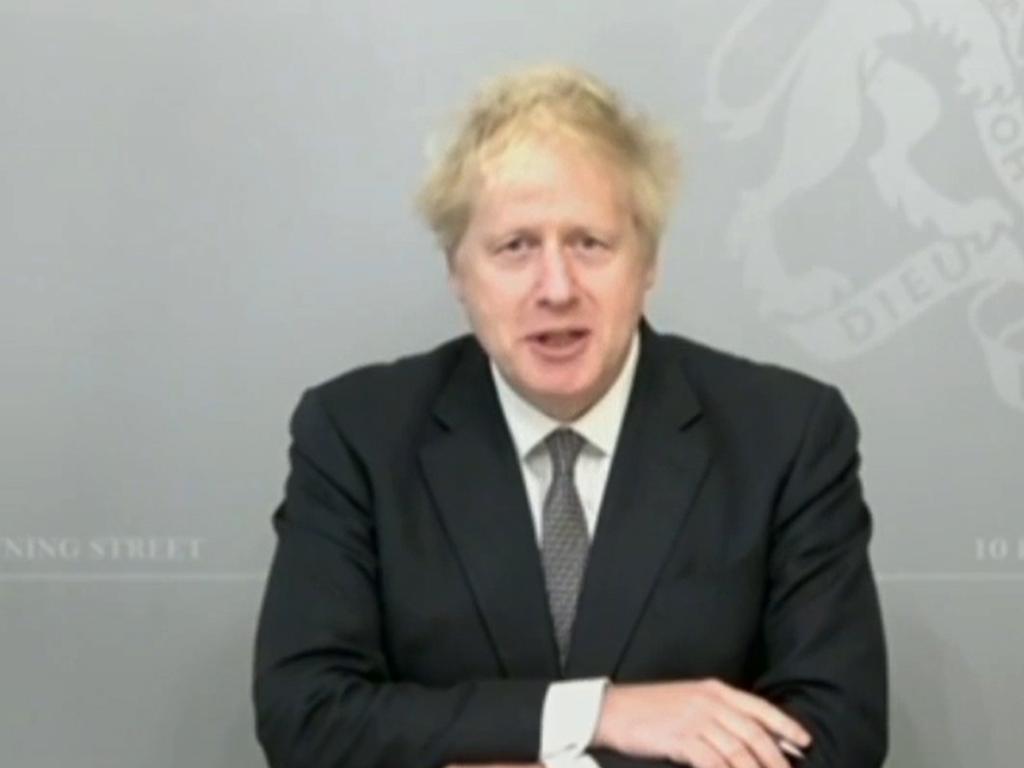Coronavirus UK: Boris Johnson faces backlash over three-tier lockdown system
UK bans most people from meeting others indoors for another four months.

Boris Johnson faces ongoing backbench rebellion to his new three-tier lockdown system, which bans most people from meeting others indoors for another four months.
As he announced a national lockdown would lift next Wednesday but be replaced with the tiered system until March, the British prime minister said “a hard winter” was ahead.
He added that vaccine developments were encouraging but warned: “Christmas cannot be normal and there is a long road to spring but we have turned a corner and the escape route is in sight.”
Mr Johnson is rolling out daily mass testing for contacts of people who have tested positive so that they can avoid automatic two-week quarantine if they test negative for five days.
Many families will continue to remain isolated from other households except for a small window across the Christmas period, although regions in tier one and two will allow up to six people to socialise outside.
WATCH LIVE: An update on coronavirus. (23 November 2020) https://t.co/GSm3OiUBJB
— Boris Johnson (@BorisJohnson) November 23, 2020
The government is liaising with administrations in Scotland, Wales and Northern Ireland to ensure a co-ordinated Christmas plan.
“It will be important to allow families and friends to meet in a careful and limited way, while recognising that this will not be a normal festive period and the risks of transmission remain very real,” Mr Johnson said.
For some parts of the country, however, most elements of the harsh second lockdown, which has been in place for the past four weeks, will continue in the guise of tier three restrictions across all of the northern hemisphere winter. London is expected to be in tier two restrictions.
Up to 70 rebel parliamentarians, as well as the Labour Party, reserved their judgment on the new English rules, slated to be introduced next week when details of which regions are placed into which tiers are unveiled on Thursday.
Mr Johnson may face the embarrassing necessity to obtain the support of Labour — which has been sceptical about the tier concept to control the virus — to get the measures passed in parliament.
He said there was a route out of the restrictions via the vaccine and also mass testing to identify asymptomatic spreaders of the virus.
Great to speak with the team at @UniofOxford & @AstraZeneca this morning to thank them for their brilliant work on the #OxfordVaccine.
— Boris Johnson (@BorisJohnson) November 23, 2020
These results are incredibly encouraging and a major step forward in our fight against Covid-19. pic.twitter.com/EUgCCIlIDT
While the Prime Minister’s “Covid Winter Plan” allows the reopening of shops, gyms, hairdressers and elements of the leisure sector — including outdoor sport, 15 people at weddings, 30 at funerals and church services — indoor events remain highly restricted or banned.
Pubs will have varying restrictions from providing take away only, to being able to serve a meal, depending on which regional tier restrictions are in place.
Sir Edward Leigh said two of his favourite activities — swimming in the Serpentine and attending mass — were “abolished” in lockdown and he demanded such activities be allowed.
He said the public hadn’t been banned from church for 800 years “since the country was put under an interdict by a medieval pope” and said there shouldn’t be “a silent night” in regards to Christmas carols.
Democratic Unionist Sammy Wilson that the latest government intent was “alarming” as democratic normality “now rests in the hands of a minister and the state”.

He said the latest coronavirus measures would drive millions into poverty and further instil fear.
Mark Harper, who chairs the rebel group of MPs demanding economic and health assessments of any coronavirus measures, said people would struggle to tell the difference between tier three and a full lockdown.
“Many MPs will hold their judgment on this until we know which areas go into which tiers,” Mr Harper said.
The government has extended its job retention scheme, supporting 9.6 million workers, until the end of March. An updated budget will be released by the Chancellor on Wednesday.
The winter package of measures costs at least £7 billion, with overall funding provided for test and trace this financial year to £22 billion.






To join the conversation, please log in. Don't have an account? Register
Join the conversation, you are commenting as Logout